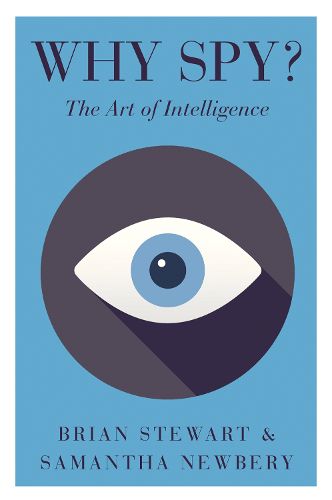Readings Newsletter
Become a Readings Member to make your shopping experience even easier.
Sign in or sign up for free!
You’re not far away from qualifying for FREE standard shipping within Australia
You’ve qualified for FREE standard shipping within Australia
The cart is loading…






Why Spy? is the result of Brian Stewart’s seventy years of working in, and studying the uses and abuses of, intelligence in the real world. Few books currently available to those involved either as professionals or students in this area have been written by someone like the present author, who has practical experience both of field work and of the intelligence bureaucracy at home and abroad. It relates successes and failures via case studies, and draws conclusions that should be pondered by all those concerned with the limitations and usefulness of the intelligence product, as well as with how to avoid the tendency to abuse or ignore it when its conclusions do not fit with preconceived ideas. It reminds the reader of the multiplicity of methods and organisations and the wide range of talents making up the intelligence world.The co-author, scholar Samantha Newbery, examines such current issues as the growth of intelligence studies in universities, and the general emphasis throughout the volume is on the necessity of embracing a range of sources, including police, political, military and overt, to ensure that secret intelligence is placed in as wide a context as possible when decisions are made.
$9.00 standard shipping within Australia
FREE standard shipping within Australia for orders over $100.00
Express & International shipping calculated at checkout
Why Spy? is the result of Brian Stewart’s seventy years of working in, and studying the uses and abuses of, intelligence in the real world. Few books currently available to those involved either as professionals or students in this area have been written by someone like the present author, who has practical experience both of field work and of the intelligence bureaucracy at home and abroad. It relates successes and failures via case studies, and draws conclusions that should be pondered by all those concerned with the limitations and usefulness of the intelligence product, as well as with how to avoid the tendency to abuse or ignore it when its conclusions do not fit with preconceived ideas. It reminds the reader of the multiplicity of methods and organisations and the wide range of talents making up the intelligence world.The co-author, scholar Samantha Newbery, examines such current issues as the growth of intelligence studies in universities, and the general emphasis throughout the volume is on the necessity of embracing a range of sources, including police, political, military and overt, to ensure that secret intelligence is placed in as wide a context as possible when decisions are made.